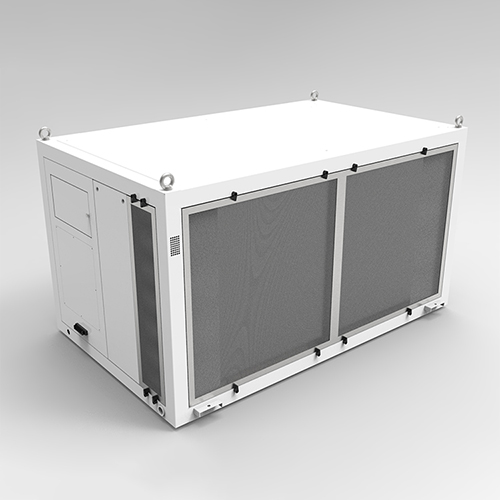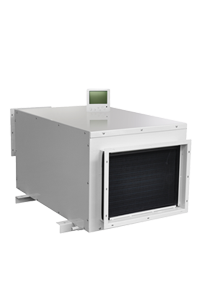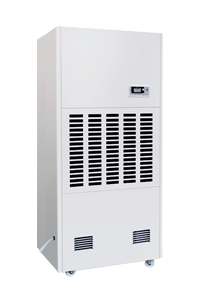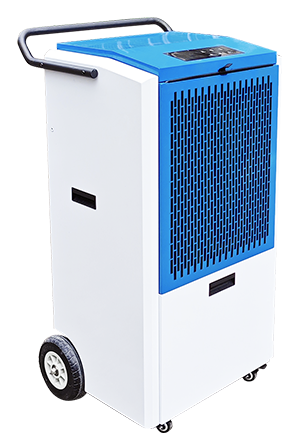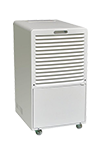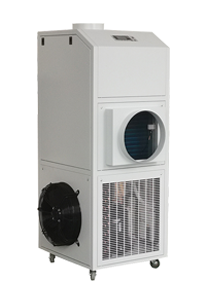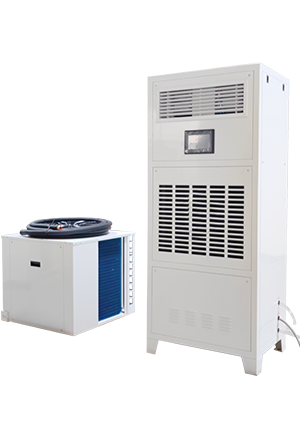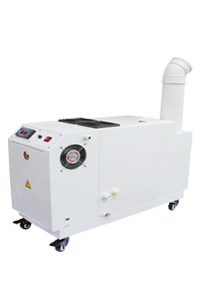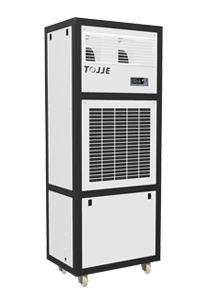News
Indoor planting has become a popular trend in modern agriculture. However, planting plants is not just about watering and fertilizing. Environmental conditions are crucial to plant growth. Humidity, as one of the important factors, will affect the healthy growth of plants if it is too high or too low. Especially when the humidity is too high, plants may face a series of problems such as root rot, increased pests and diseases, and poor air circulation. So, how to effectively regulate indoor humidity to ensure that plants thrive in the best growth environment? The answer is - dehumidifier.
The impact of humidity on plant growth
Humidity plays a dual role in indoor planting. For most indoor plants, moderate humidity is the best condition for their growth. However, once the humidity is too high, problems will follow. The following are several common problems that may be caused by excessive humidity:
1. Root rot: When the humidity is too high, the water in the soil cannot evaporate in time, causing the roots to be in a waterlogged state for a long time, which is easy to rot and eventually lead to plant death.
2. Pest and disease breeding: A humid environment can easily become a breeding ground for mold, fungus, powdery mildew and other pathogens, which not only affect the health of plants, but also spread rapidly and destroy the entire botanical garden.
3. Poor air circulation: Excessive humidity will affect indoor air circulation, causing the air to be stuffy, and the photosynthesis and respiration of plants may be restricted.
4. Moldy or yellowing leaves: High humidity will affect the transpiration of plant leaves, causing mold spots to grow on the leaves, and even yellowing and wilting.
Therefore, maintaining proper indoor humidity is essential for the healthy growth of plants.
Dehumidifier - "humidity housekeeper" for indoor planting
In order to effectively regulate indoor humidity, dehumidifiers have become the preferred equipment for many indoor planting enthusiasts. Dehumidifiers not only help you control humidity, but also create an ideal growth environment for your plants, ensuring that they can thrive in optimal conditions.
1. Accurately control humidity dehumidifiers can accurately regulate the humidity level in the air to ensure that your indoor plants have a suitable humidity environment. Most plants prefer a relative humidity between 40% and 60%. Too high or too low will affect the growth of plants. Dehumidifiers help plants stay within the ideal humidity range by regulating humidity.
2. Prevent root rot and disease excessive humidity can easily cause the soil to be wet for a long time, which in turn causes root rot. Dehumidifiers can effectively remove excess moisture from the air, avoid excessive humidity, and reduce the risk of root rot. In addition, maintaining a dry environment can effectively prevent the growth of mold and other pathogens, and reduce the chance of plants suffering from diseases and pests.
3. Improve air circulation dehumidifiers can not only remove moisture from the air, but also improve indoor air circulation, avoiding a heavy humidity environment that makes the air seem dull. Fresh air helps to improve the photosynthesis efficiency of plants and promote the healthy growth of plants.
4. Intelligent humidity management Modern dehumidifiers are usually equipped with intelligent humidity control systems that can automatically adjust the operating status according to the ambient humidity. By setting the target humidity, the dehumidifier will automatically switch on and off according to the actual situation, saving time and effort, and ensuring that your plants are always in the best environment.
Choose a suitable dehumidifier
When choosing a dehumidifier, you should first decide on the appropriate model based on the area and humidity of the indoor planting. For a small plant breeding space, a small and convenient dehumidifier is sufficient to meet the needs; for a large area of indoor planting, a device with higher power and higher dehumidification efficiency may be required. When choosing, you can consider the following factors:
● Dehumidification capacity: Choose a dehumidifier that matches the area of the room to ensure that it can effectively remove excess moisture in a shorter time.
● Noise level: The dehumidifier will produce a certain amount of noise when running, especially in the indoor planting area. Excessive noise may affect the comfort of you and the plants. Choose a dehumidifier with a low noise design to ensure the dehumidification effect without affecting the indoor environment.
● Energy efficiency ratio: A high-efficiency dehumidifier can not only save you electricity bills, but also extend its service life. Choose an energy-saving dehumidifier, which is both environmentally friendly and economical.
Summary: Dehumidifier is your good helper for indoor planting
Humidity control is crucial to the healthy growth of indoor plants, especially in indoor planting environments, where excessive humidity may bring a series of problems. Dehumidifiers are an ideal solution to the problem of excessive humidity. They can help you precisely adjust humidity, prevent root rot and pests, and promote air circulation, so that your plants always thrive in the best environment. Choosing a suitable dehumidifier will make your indoor planting experience easier and more enjoyable, and create an ideal green space!
